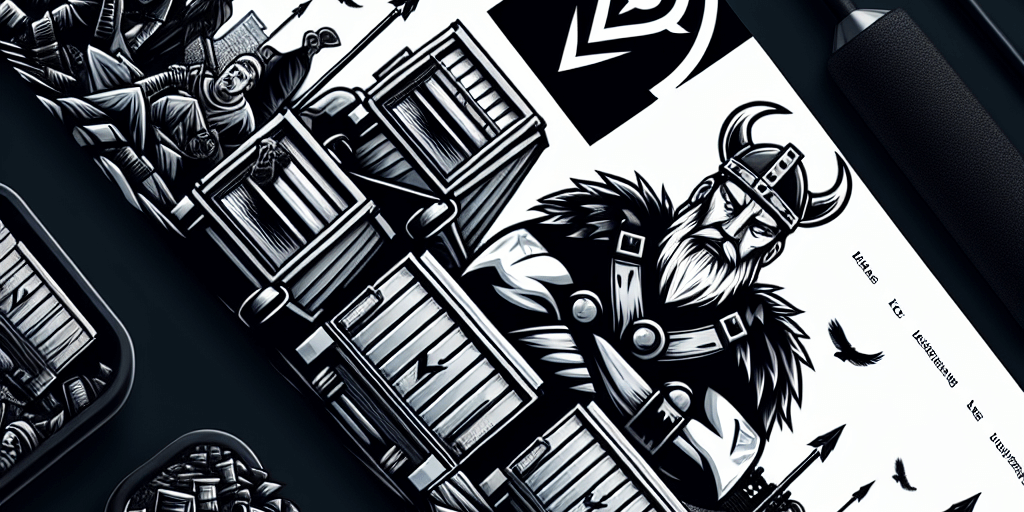Understanding Hoarding Disorder: What Mental Illness Do Most Hoarders Have?
Introduction to Hoarding Disorder
Hoarding disorder is more than just the accumulation of “stuff”; it’s a complex and often misunderstood mental health condition that touches the lives of millions. At its core, hoarding involves persistent difficulty discarding possessions, regardless of their actual value, coupled with excessive accumulation that can overwhelm living spaces. For single-family homeowners, understanding this condition is essential, as its challenges can manifest in ways that affect property safety, health, and quality of life.
In neighborhoods with deeply rooted community ties, the implications of hoarding can ripple beyond individual households, affecting families, neighbors, and even public spaces. By shedding light on this topic, we hope to foster empathy, understanding, and actionable solutions for those impacted by hoarding disorder.
The Mental Health Aspects of Hoarding
Hoarding disorder is recognized as a legitimate mental health condition, one that is included in the DSM-5 (Diagnostic and Statistical Manual of Mental Disorders). It’s not simply a matter of laziness or clutter; at its heart lies a web of psychological challenges that can make even small decisions feel insurmountable. Individuals with this disorder often experience intense anxiety at the thought of discarding items, coupled with an overwhelming need to save them “just in case.” For many, this results in a cycle that can feel impossible to break.
The underlying emotions—stress, fear, guilt—are powerful. Objects may represent security, memories, or symbolic value, making parting with them extraordinarily painful. This is compounded by the shame and judgment that individuals often face from others who may not fully understand the condition. For homeowners, this internal conflict can translate into spaces filled beyond capacity, creating environments that are emotionally suffocating and physically unsafe.
Yet, it’s important to approach the conversation with compassion. Hoarding disorder is not a choice; it’s an illness. While the external results are visible—cluttered hallways, blocked exits, or even entire rooms rendered unusable—the internal battle is often hidden and deeply personal.
Common Symptoms and Behaviors
Recognizing the symptoms of hoarding disorder can be the first step toward seeking help. Here are some common signs:
- Difficulty discarding possessions, even items with little or no practical value.
- Intense emotional distress when faced with the idea of letting go of items.
- Excessive accumulation of objects, leading to overcrowded living spaces.
- Clutter that impairs functionality in specific areas, such as kitchens, bathrooms, or bedrooms.
- Hoarding tendencies that interfere with daily life, including strained relationships or unsafe conditions.
These behaviors can evolve slowly over time, making it critical to address them with early intervention and understanding.
Impact of Hoarding on Individuals and Families
The consequences of hoarding extend beyond the individual, often placing emotional and physical strain on families, neighbors, and entire communities. From a safety perspective, hoarding can transform homes into potential fire hazards, create breeding grounds for pests, and even cause structural damage due to excessive weight and clutter. For many homeowners, these risks can feel insurmountable, prompting conflict with local safety codes or homeownership responsibilities.
But beyond these tangible issues lies a deeply emotional toll. Family members may feel helpless, resentful, or even alienated, as their attempts to “help” are met with resistance or denial. Neighbors might experience indirect effects, from unpleasant odors to decreased property values, which can strain relationships within tight-knit communities. Addressing these challenges with sensitivity is vital to fostering a cooperative and supportive environment for long-term solutions.
Seeking Help: Compassionate Solutions for Hoarding
If someone you know is struggling with hoarding disorder, the road to recovery begins with empathy. Approaching the situation sensitively, without judgment, is key. Encourage open conversations about their feelings and struggles, providing reassurance that help is available. For deeper intervention, mental health professionals trained in hoarding disorder can provide the tools and therapeutic approaches necessary to address both the symptoms and the emotional roots of the condition.
Compassion and patience must be at the forefront of every interaction. Recovery takes time, and change can be overwhelming for those affected. Small victories—like clearing a single surface or room—deserve recognition and encouragement as part of a greater journey toward a healthier life.
How Sons of Odin Hauling Can Help in Harding Neighborhood
At Sons of Odin Hauling, we understand the delicate nature of hoarding cleanups. It’s not just about clearing a space—it’s about restoring lives. We bring sensitivity and professionalism to every job, ensuring that those in challenging situations feel respected and supported throughout the process.
Our expertise in dumpster rentals, waste hauling, and specialized services like bobcat/skid-steer equipment ensures that no job is too complex. Whether it’s a cluttered garage, an inaccessible backyard, or an entire household in need of clearing, we’ve got the tools and experience to handle the task efficiently and discreetly. Familiar with the local regulations in neighborhoods like Harding, our services are fully compliant, making the cleanup process seamless and straightforward.
If you or a loved one is facing the overwhelming challenge of a hoarding situation, we’re here to help. Contact us for a confidential consultation and let’s work together to create a safer, more livable space.
Conclusion
Hoarding disorder is a condition that requires understanding, compassion, and a willingness to help. The impact of hoarding stretches from individuals to families and communities, and addressing it means recognizing the mental health challenges at its core. By fostering a supportive approach and seeking professional services, recovery becomes possible.
At Sons of Odin Hauling, our goal is not just to clear clutter but to provide meaningful assistance that transforms lives. Remember, no situation is too big or too overwhelming to tackle with the right team. Reach out to us today and take the first step toward a cleaner, safer, and more supportive tomorrow.







